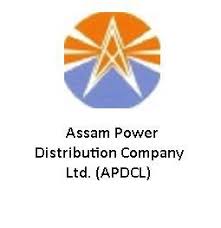APDCL Assistant Manager Syllabus for Electrical PDF Download
APDCL Assistant Manager Syllabus for Electrical PDF Download: Hello Aspirants, Welcome to our website examad.com Here you will get all latest recruitment notifications and all information about competitive exams. in this article, we will discuss Assam Power Distribution Company Limited APDCL Recruitment 2021 for Engineers. At the end of this article, you will also get a link to download APDCL Assistant Manager Syllabus for Electrical PDF and also Junior manager electrical syllabus.
APDCL, AEGCL, and APGCL are three companies of Assam State Electricity Board. Here we will only discuss the syllabus for the Electrical branch. Total vacancies for Assistant manager Electrical is 92 and for Junior Engineer Electrical vacancies are 76.
Exam pattern and Syllabus for Assitant and Junior Manager Electrical
Recruitment process consists of an online exam followed by viva interview. The exam is of total 200 marks having two papers. paper 1 – general English and General Aptitude. paper 2 – core subjects. Exam pattern is the same for the Assistant manager and Junior manager.
You can Download APDCL Assistant Manager Syllabus for Electrical PDF by clicking on the link given below. So let’s check Syllabus for APDCL Assistant Manager Electrical
APDCL Assistant Manager Syllabus for Electrical Engineering
Paper 1 – General English and General Aptitude Syllabus ( Degree Level)
English: sentence completion, sentence improvement, ordering of words in a sentence, spotting errors, synonyms, and antonyms, Idioms, and phrases, fill in the blanks, word groups, instructions, critical reasoning and verbal deduction.
General Aptitude: Time and distance; Series, Analogy, Statement, Direction; Verbal and non-verbal reasoning.
Paper 2 – Core Subjects in Electrical Engineering ( Degree Level)
Electric Circuits: Network graph, KCL, KVL, Node and Mesh analysis, Transient response of dc and ac
networks, Sinusoidal steady‐state analysis, Resonance, Passive filters, Ideal current and voltage sources,
Thevenin’s theorem, Norton’s theorem, Superposition theorem, Maximum power transfer theorem,
Two‐port networks, Three phase circuits, Power, and power factor in ac circuits.
Electromagnetic Fields: Coulomb’s Law, Electric Field Intensity, Electric Flux Density, Gauss’s Law,
Divergence, Electric field and potential due to the point, line, plane and spherical charge distributions,
Effect of the dielectric medium, Capacitance of simple configurations, Biot‐Savart’s law, Ampere’s law, Curl,
Faraday’s law, Lorentz force, Inductance, Magnetomotive force, Reluctance, Magnetic circuits, Self and
Mutual inductance of simple configurations.
Signals and Systems: Representation of continuous and discrete‐time signals, Shifting and scaling
operations, Linear Time-Invariant and Causal systems, Fourier series representation of continuous
periodic signals, Sampling theorem, Applications of Fourier Transform, Laplace Transform and Z transform.
Electrical Machines: Single phase transformer: equivalent circuit, phasor diagram, open circuit and
short circuit tests, regulation, and efficiency; Three phase transformers: connections, parallel operation;
Auto‐transformer, Electromechanical energy conversion principles, DC machines: separately excited,
series and shunt, motoring and generating mode of operation and their characteristics, starting and
speed control of dc motors; Three phase induction motors: the principle of operation, types, performance,
torque-speed characteristics, no-load and blocked rotor tests, equivalent circuit, starting and speed
control; Operating principle of single phase induction motors; Synchronous machines: cylindrical and
salient pole machines, performance, regulation and parallel operation of generators, starting off the synchronous motor, characteristics; Types of losses and efficiency calculations of electric machines.
Power Systems: Power generation concepts, ac and dc transmission concepts, Models and performance
of transmission lines and cables, Series and shunt compensation, Electric field distribution and
insulators, Distribution systems, Per‐unit quantities, Bus admittance matrix, Gauss-Seidel and Newton-Raphson load flow methods, Voltage and Frequency control, Power factor correction, Symmetrical
components, Symmetrical and unsymmetrical fault analysis, Principles of over‐current, differential and
distance protection; Circuit breakers, System stability concepts, Equal area criterion.
Control Systems: Mathematical modeling and representation of systems, Feedback principle, transfer
function, Block diagrams, and Signal flow graphs, Transient and Steady‐state analysis of linear time
invariant systems, Routh-Hurwitz and Nyquist criteria, Bode plots, Root loci, Stability analysis, Lag, Lead
and Lead‐Lag compensators; P, PI and PID controllers; State space model, State transition matrix.
Electrical and Electronic Measurements: Bridges and Potentiometers, Measurement of voltage,
current, power, energy and power factor; Instrument transformers, Digital voltmeters, and multimeters,
Phase, Time and Frequency measurement; Oscilloscopes, Error analysis.
Analog and Digital Electronics: Characteristics of diodes, BJT, MOSFET; Simple diode circuits: clipping,clamping, rectifiers; Amplifiers: Biasing, Equivalent circuit, and Frequency response; Oscillators and Feedback amplifiers; Operational amplifiers: Characteristics and applications; Simple active filters, VCOs and Timers, Combinational and Sequential logic circuits, Multiplexer, Demultiplexer, Schmitt trigger,
Sample and hold circuits, A/D and D/A converters, 8085Microprocessor: Architecture, Programming and
Interfacing.
Power Electronics: Characteristics of semiconductor power devices: Diode, Thyristor, Triac, GTO,
MOSFET, IGBT; DC to DC conversion: Buck, Boost and Buck-Boost converters; Single and three phase
the configuration of uncontrolled rectifiers, Line commutated thyristor-based converters, Bidirectional ac to
dc voltage source converters, Issues of line current harmonics, Power factor, Distortion factor of ac to
dc converters, Single phase and three phase inverters, Sinusoidal pulse width modulation.
For APDCL Assistant Manager Syllabus for Electrical PDF Download Paper 1 – Click Here
For APDCL Assistant Manager Syllabus for Electrical PDF Download Paper 2 – Click Here
APDCL Junior Manager Syllabus for Electrical Diploma Engineering
Paper 1 – General English and General Aptitude Syllabus ( Diploma Level)
English: sentence completion, sentence improvement, ordering of words in a sentence, spotting errors, synonyms and antonyms, Idioms and phrases, fill in the blanks, word
groups.
General Aptitude: Time and distance; Series, Analogy, Statement, Direction; Verbal and non-verbal reasoning.
General Knowledge: Current Affairs (National and International); Who’s Who; Sports; Books and Authors; Awards and Honours; Science – Inventions and Discoveries; Abbreviations;
Important Days.
Paper 2 – Core Subjects in Electrical Engineering ( Diploma Level)
Electrical Circuits: Phasors and phasor algebra, balanced and unbalanced poly-phase circuit, Test
signals, Star-Delta transformation, Network theorems, Parameters of electromagnetic circuits,
resonance in R-L-C Series and Parallel circuits, Network analysis by mesh and node methods.
Electrical Engineering Materials: Conducting, Insulating materials and Magnetic materials, Properties
and applications.
Electrical Instruments and Measurements: Principles of measurements: Classification, accuracy, and
sensitivity, damping and control forces, shunt and multiplier, Measurement of resistance: Low, medium
and high. Principle and uses of DC potentiometers, AC Bridges. Indicating instruments: Multimeter, PF
meters, synchroscope.
Electrical Machines: Classification of D.C. machines: Constructional features, e.m.f., torque, excitations,
motor performance, speed, power, size considerations, speed control, efficiency.
Transformers: Induced e.m.f., equivalent circuits, regulation, different efficiencies. Three phase
induction machines: Torque characteristics, Starting, Equivalent Circuits. Three Phase Synchronous
Machines: Generation, voltage regulation, parallel operation, synchronous motor, starting and V-curves,
Single phase motors: type, starting characteristics.
Generation, Transmission, and Distribution:
Generation: Thermal, Hydel and Nuclear Power Stations, Prime movers and alternators.
Transmission: Voltage levels, line conductors, electrical line parameters of short and medium lines,
voltage regulation, corona. Distribution: D.C. and A.C. systems, voltage level, types of distribution
feeders and distributors, voltage drop and effects, power factor improvement plant.
Substation: Different types, site selection, equipment, electrical earthing. Switchgear: Switches,
isolators, circuit breakers and their types. Protection: Fault current and protective devices, fuses, relay
functions, alternator, Transformer protection, thermal relays, over voltage-causes, effect, and protective
devices.
Electrical Estimation and Costing: Estimation of materials for industrial and residential installations.
UPS and small diesel generating-set and accessories. Cost estimation of materials and selection criteria,
Design and calculation of the cost of 400V/230V three phase 4 wire, 100-500 KW overhead line,
Tenders.
Electrical Power Utilization: Design of lighting system. Electrical Heating: Resistance heating, Induction
heating, Arc heating and Dielectric heating, types of electric welding Electrochemical process: Principles,
equipment, and procedure. Electrical Drives: Characteristics of various electric drives, speed control,
starting and breaking, mechanical consideration, selection of motors.
Power Electronics: Power diodes and Darlington Pair. Thyristor: Principle, thyristor family, firing circuits, applications, Selenium rectifiers, uncontrolled and controlled rectification, Power MOSFETs.
Digital Electronics: Digital signals, gates, Boolean algebra, logic families, multiplexers / demultiplexer,
Encoders/decoders, flip-flops, registers, counters and applications of logic gates, OPAMPS in timing
circuits, A/D and D/A conversion.
Computer Programming: Concept of low level and high-level languages, Block-diagram, the concept of flowchart, and algorithm, Assemblers, Macros, sub-routines, co-routines, loaders, linkers, editors and
compilers, programming and file handling in C and C++.
For APDCL Junior Manager Syllabus for Electrical PDF Download Paper 1 – Click Here
For APDCL Junior Manager Syllabus for Electrical PDF Download Paper 2 – Click Here
Check Full Details of APDCL Recruitment

